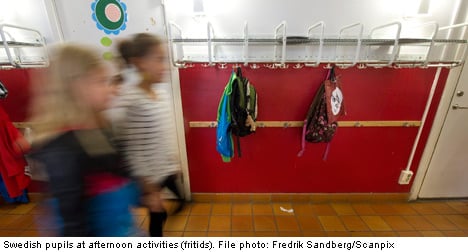Writing in Dagens Nyheter (DN), Anders Borg and his Moderate Party colleague Tomas Tobé, head of the parliamentary committee on education (utbildningsutskottet), argued that the removal of grades for young children had most affected the pupils with less-educated parents.
“Swedish schools will have zero tolerance of pupils not reaching the education goals and Sweden will be one of the countries that face international competition with knowledge, research and high productivity,” they wrote.
Citing Swedish children’s slipping test results in international comparisons, they credited Education Minister Jan Björklund for tightening the reins.
“Investments in teacher quality and salaries, which will make teaching into a career, in conjunction with earlier grading, more national tests and longer hours spent in school are examples of reform,” they wrote.
“These reforms give support in particular to pupils whose families aren’t able to compensate for gaps in teaching at school.”
They said research supported this thesis, but did not specify which studies.
Borg and Tobé further argued for the importance of grades in giving teachers and principals feedback about which students needed extra help. It could also help identify schools in need of more resources, they said.
Referencing Finland’s high scores in international comparisons, they argued that Sweden should adopt its neighbour’s system of offering help to students early on.
“In Sweden, about 15 percent of grade-schools were not offering help to pupils who risked not getting adequate grades,” they wrote about a School Inspectorate (Skolinspektionen) study from 2011.
“The pupils have a right to that help.”
The Local/at



 Please whitelist us to continue reading.
Please whitelist us to continue reading.
Member comments